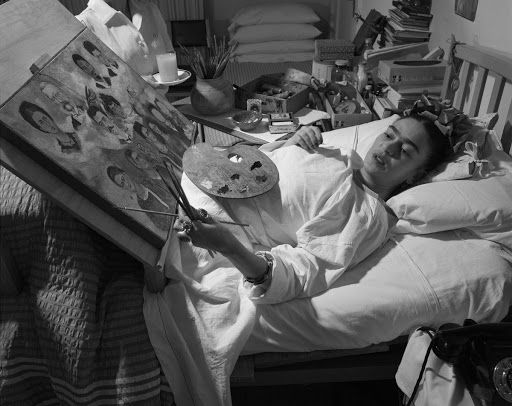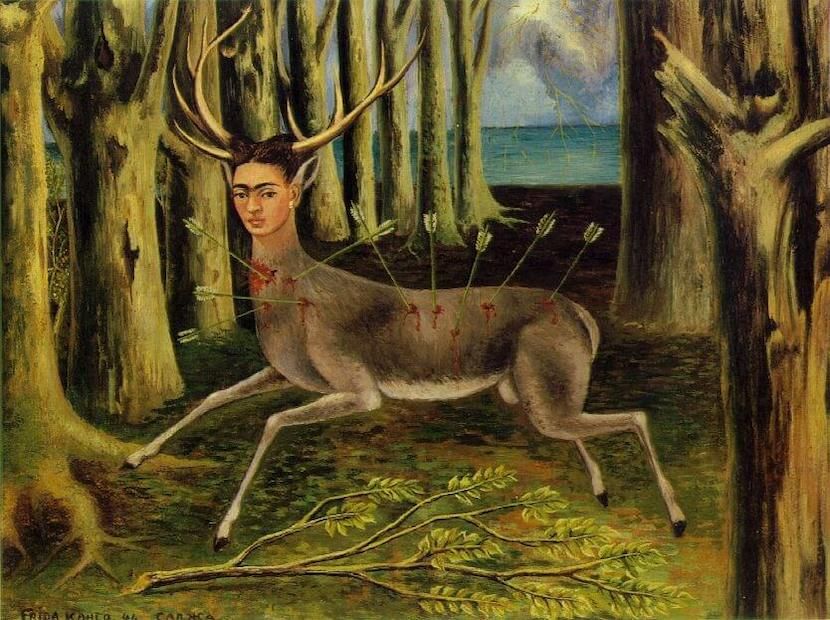on priorities (part two)
- 8 minsThe first part was written four years ago—how things have changed!
This year has been a series of health issues. It started with getting COVID and getting over my knee pain. Then I injured my wrist during boxing, and that made typing/painting/writing/most things painful. I then re-hurt my wrist during yoga a few months ago, and now I have to be extremely gentle with it (I can’t type or write too long), or it starts hurting again. I also got bronchitis, which turned into pneumonia that took me out for over a month. I am now healing from an ankle sprain that first happened during a hike but got worse when I tried running a few weeks later, and now I can only walk very short distances. Before this year, I never had anything that took me out for very long, so this has all been humbling and new.
Due to my various injuries and sicknesses, it’s been over a year since I last went on a long run. I miss it so much—I literally had a dream where I was happily running. I miss being in nature, seeing the sunset, and the quiet nights when no one else was around. I miss the feeling of freedom and strength, the exhaustion that quiets my brain, and the physical and mental challenge. I loved going slowly at a steady pace, getting into a rhythm, and listening to my feet and breath. Running was my meditation, and I don’t feel the same without it. I can slightly swim and have biked a bit (before my ankle injury), but it’s not the same.
Being unable to perform even basic things or do what I love gets difficult mentally. It feels like my body is betraying me (even when I know it’s doing its best to heal), and it’s sometimes hard to keep my spirits up when all I want to do is live without any pain and move my body in the ways I want. I’ve thought to myself many times “What is wrong with me? Why can’t I be like I used to be?”, and I’ve wondered whether I have some underlying issue. But I don’t—I’ve just had a series of unfortunate events. They all put life in perspective for me. I’m trying to focus on what I can do instead of what I can’t (some exercises/stretches/foam rolling) and being grateful for the extra time to read/think/learn, and remember that this is just temporary. The silver lining is that I now know so much more about human anatomy, and I’m learning more about the human body through podcasts and YouTube videos. I’ve also been eating and sleeping very well, which hopefully helps my healing process. I can only imagine what people with chronic pain/illnesses or physical debilitations go through in their lifetime, and how society is truly set up for able-bodied people.
Frida Kahlo is one of my favorite painters, and she was in chronic pain for most of her life. The thing about pain—physical or mental—is that it is something no one else can understand except yourself. You can tell someone how much it hurts and describe it on a scale, but no one can really feel it the way that you do. It profoundly shapes the way you see the world—it feels like you’re watching the rest of the world moving through a window, and you’re standing still. Pain is an isolating experience, and art is a way of expressing it.

Frida Kahlo was in a car accident at age 18 that left her in chronic pain for the rest of her life. This is her painting in bed when she was bedridden for months.
 The Wounded Deer, 1946 by Frida Kahlo. She painted this after a failed surgery that was supposed to help her back pain.
The Wounded Deer, 1946 by Frida Kahlo. She painted this after a failed surgery that was supposed to help her back pain.
It wasn’t just my own health issues—my grandfather passed away suddenly in May, and I was heartbroken. My grandfather was such a big part of my life, and one of the strongest people I know. I had a very special relationship with my grandfather—my grandparents lived with us growing up, and they basically raised us when our parents were working. My grandfather inspires me to take care of my health; even after he got six inches of bone cut off from his leg from cancer, he went to the gym every morning at 8 AM for years to work on his fitness. My grandfather was a fighter. He loved fiercely and deeply, and his love for our family was strong. Even though he had his flaws (he had occasional anger problems and some outdated views), he was deeply emotional and highly artistic. He was musical, athletic, and smart. He loved table tennis (and would beat my dad who is already very good), played the erhu, and was good at Chinese calligraphy. He was an electrical engineer working on planes—but he never talked about work to us, just about the value of hard work. And most of all, he loved me and my sister unconditionally. Of course, parents love the best they can, but the love from grandparents is different—less conditional, more mellow and stable. Because of my grandparents, I never questioned whether I was loved. Looking back, that was one of the greatest gifts I could ever have in this life, and the greatest gift I want to give to my future kids and grandkids (if I have any).
Through grief, sickness, pain, and recovery, this year had been unexpectedly filled with solitude. As much as I love socializing and meeting new people, all I wanted was to be alone. I had little desire to socialize in large groups, and I just spent time by myself. I needed to just feel, process, reflect, and be in my own energy. But through it all, I also found strength in those I love—the few people in this world I can count on for anything, who always make me feel seen and understood. By spending time alone and with my inner circle, I became much more clear about the values I look for in the people around me. I became more attuned to how I felt around other people, and I tried to learn how to keep my sense of self through my interactions. I now see clearly what I prioritize in my close relationships and what I value more broadly—people who are open (both in communication and in mindset), I feel completely safe and able to be myself around, value growth and continually invest in themselves, seek to understand themselves and others through introspection and connection, send love/compassion/care/warmth towards themselves and others, are emotionally mature and sensitive, try to work through their personal problems to strengthen or at least not harm the relationship, have a small ego and aren’t pretentious or ostentatious, are deeply passionate, and have genuine self-respect. This, in turn, is also the kind of person I want to be for others.
Even through the struggles and the ups and downs, I realized that I am living my dream life right now. I am exactly where I want and need to be. I am luckier than I will ever know. I have everything I want, and everything more—relationships, money, opportunities, etc.—is just extra. You could ask me to choose a different life, any life, and I would still choose this life, over and over again. Because I made the choices I did, because I did what I could with what I had. And even if I’m sad or anxious or lonely or feeling any negative emotion, I wouldn’t have it any other way. I know I will have many more struggles in life—to love deeply is also to lose deeply, to be in this human form is to feel physical and emotional pain. I want to feel it all. Perception—which shapes our perspective—is the greatest gift of human consciousness.
This year has reaffirmed what I prioritize in life. I think a lot about what I value, but often, values can conflict based on external circumstances. The only way to deliberately know what actions to take is to figure out your priorities—i.e., an ordered list of what you value. Before, I just knew my priorities loosely, so I felt like I was being pulled in many different directions. I now live my priorities through my actions every single day—setting boundaries, putting in the work, and saying yes or no when it feels right. I do not care how “successful” I am if I’m not physically, mentally, and spiritually well. I don’t care how successful I am if I am not with the people I love and care about. I prioritize health, relationships/community, creativity/wonder/art, and work/career—in that order. (Although ideally, priorities aren’t necessarily an ordered list, they feed off each other and create positive feedback loops.) Maybe this is too bold of a statement to proclaim, especially in the culture of Silicon Valley where work is often seen as the number one priority, but I no longer care. And honestly, I feel like many other people feel this way. I need real alignment in my life—to have a lifestyle, career, and relationships that support my priorities. I know what I value, which allows me to know how to prioritize, which guides my actions and thoughts in my everyday life. As I grow older, my priorities will shift, because my values will change. But I hope I will always grow in alignment, where my values and priorities match my actions and lifestyle. I believe that’s what it means to grow into oneself, and I think that’s where true confidence and fulfillment come from.